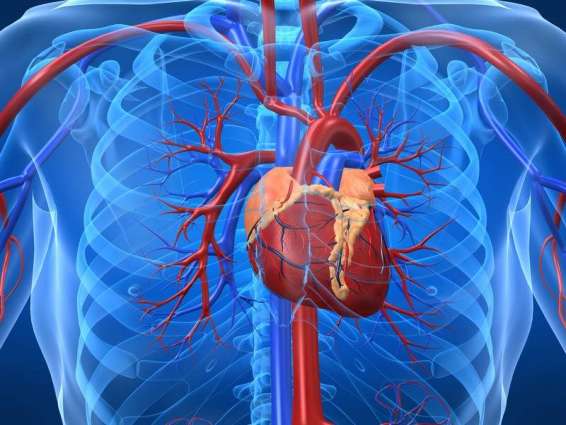COVID-19 may possibly directly affect the heart with the same penetration mechanism as when it invades lung cells, the spokesman of the European Society of Cardiology (ESC) told Sputnik
GENOA (Pakistan Point News / Sputnik - 05th June, 2020) COVID-19 may possibly directly affect the heart with the same penetration mechanism as when it invades lung cells, the spokesman of the European Society of Cardiology (ESC) told Sputnik.
Earlier in the week, a group of molecular biologists from Germany announced in their research published on the bioRxiv preprint server that the SARS-CoV-2 virus could directly affect cardiac cells and reproduce in the cardiac tissues of certain COVID-19 patients.
"The same receptors that the virus uses to invade the lung cell are present in the cardiac myocyte, so it could directly affect the heart and produce myocardial damage. There is little information on how these patients should be treated, but in addition to the specific treatment for the virus, and according to the degree of cardiac affliction, symptomatic treatment measures should be implemented, as well as, diuretics in case of heart failure or ventricular assistance in case of cardiogenic shock," the ESC spokesperson said.
In April, a group of researchers from University Hospital Zurich published a study claiming that the COVID-19 disease is more a systemic vascular inflammation rather than pneumonia and that the novel coronavirus attacks the lining of blood vessels across the body. Also, a number of scientific studies and publications emphasized that the high level of the COVID-19 death rate was related to cardiovascular complications. In particular, Circulation Research published in AHA Journals in May says it reaches 40 percent, which makes the disease look like a vascular infection.
"COVID-19 could probably be a primarily immunological disease, with all the consequences which that implies on the vascular system. Immune system activation along with immunometabolism alterations may result in plaque instability, contributing to the development of acute coronary events. Moreover, an increased rate of thromboembolic events has been observed in the context of COVID-19 infection," the spokesperson continued.
Therefore, patients with cardiovascular risk factors, including male sex, advanced age, diabetes, hypertension and obesity, as well as those with established heart and circulation diseases, are particularly vulnerable to the virus and demonstrate increased mortality when suffering from COVID-19, the spokesperson concluded.
Meanwhile, the effect of coronavirus on children apparently manifests on the cardiovascular system as well.
"Severe COVID-19 infection is associated with myocardial damage and cardiac arrhythmias. The aetiology of Kawasaki disease is unknown, although several theories have been proposed about the pathogenesis. Genetics seems to play an important role," the spokesperson said, noting that there is still not enough evidence to support the explanation of PMIS related to COVID-19.
In May, a study was published in Italy claiming a monthly incidence of Kawasaki-like disease cases in children in the Bergamo province was at least 30 times greater than the monthly incidence of the previous 5 years. It stated that there was a "clear starting point" after the first case of COVID-19 was diagnosed in the area. Later, the growth in Kawasaki-like syndrome, affecting young children and causing heart and kidney failure, was detected in other countries, including the United States, the United Kingdom, Germany, Spain and Switzerland. It was classified as Pediatric Multi-System Inflammatory Syndrome (PMIS).




